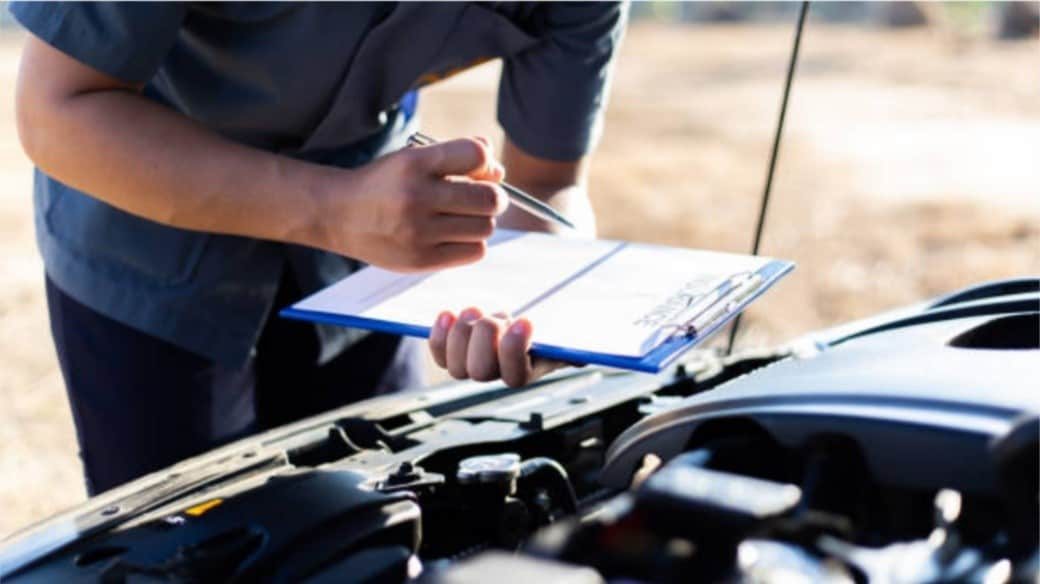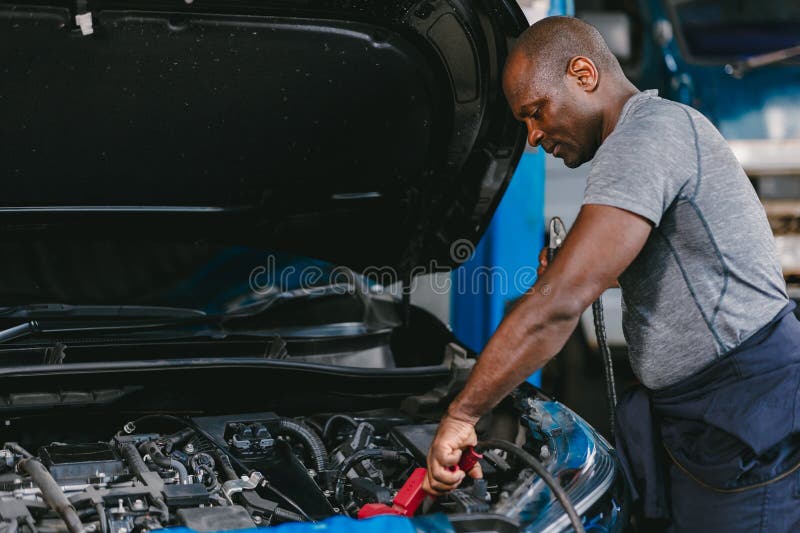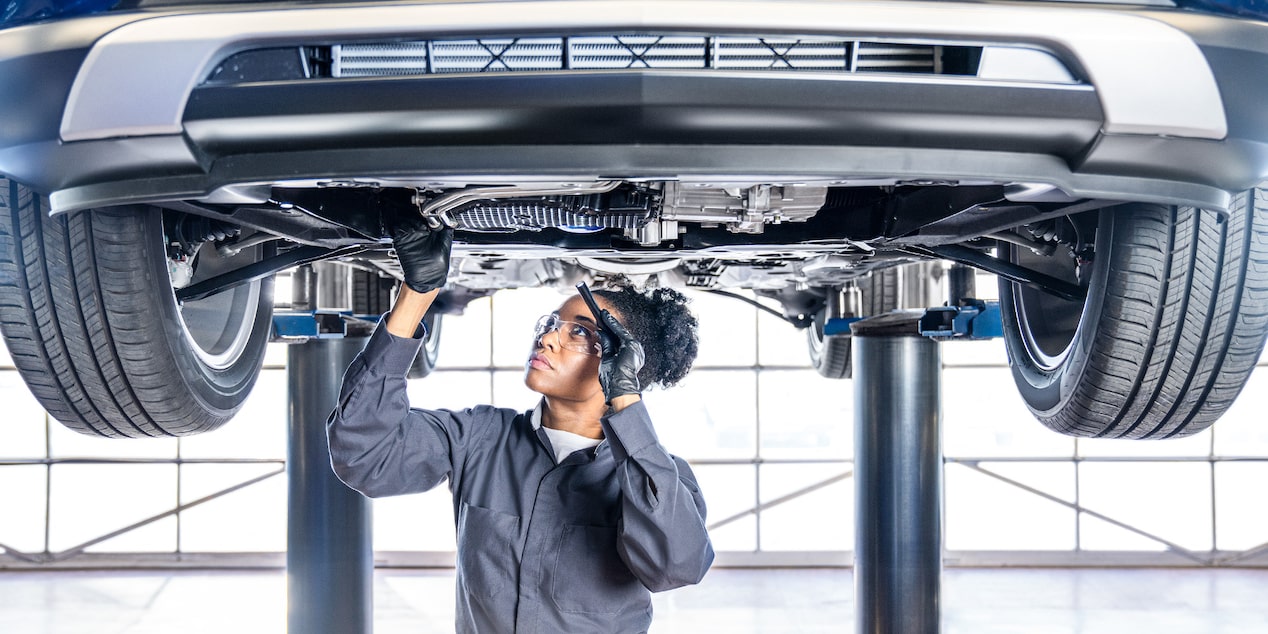All Categories
Featured
Your car's engine is an intricate item of equipment that requires routine care to operate effectively. By taking preventative steps, you can keep your engine running smoothly and avoid substantial expenses.
Engine oil lubes inner components, decreasing rubbing and wear. Adjustment the oil and oil filter as advised by your vehicle's supplier-- generally every 5,000 to 7,500 miles for modern cars. Utilizing the best sort of oil is similarly essential; consult your proprietor's handbook to make certain compatibility with your engine.
The engine's cooling system prevents overheating, which can cause serious damage. Examine coolant levels frequently and re-fill as essential. Furthermore, adhere to the supplier's guidelines for flushing and changing coolant to maintain the system functioning successfully.
![]()
Engines require a steady circulation of tidy air for burning. A stopped up air filter can decrease fuel effectiveness and efficiency. Inspect the air filter occasionally and replace it when it shows up dirty or after getting to the gas mileage specified in your vehicle's maintenance schedule.
Strange noises, lowered efficiency, or control panel caution lights often signal underlying engine problems. Address these warning indications promptly by getting in touch with a qualified auto mechanic to identify and deal with troubles before they escalate.
Fuel high quality straight affects engine health. Use fuel with the appropriate octane rating for your car to prevent knocking and down payments in the burning chamber. Sometimes, including a gas injector cleaner can additionally help keep a tidy gas system.
Flicker plugs are necessary for sparking the air-fuel mixture in the engine. Worn-out trigger plugs can result in misfires, poor fuel economy, and increased emissions. Follow your automobile's maintenance routine to replace them at the recommended periods.
![]()
Hostile driving, such as rapid acceleration and hard braking, locations added tension on your engine. Keep steady rates and technique smooth driving practices to lower unneeded deterioration.
![]()
Broken or worn hose pipes and belts can bring about overheating or various other engine failures. Check these parts regularly and change them if you discover any kind of signs of wear, such as fraying or fractures.
Dirt and debris can damage engine components over time. Ensure all seals are intact which the air consumption system is complimentary from blockages. Normal checks can stop pollutants from triggering damages.
Even if your car seems to be running well, normal inspections by a relied on technician can uncover covert problems. A specialist can identify wear-and-tear problems early, saving you from expensive fixings down the line.
By adhering to these preventative procedures, you can prevent the stress and cost of major engine repair services. Regular attention and care not only maintain your lorry dependable but also boost its resale worth and general efficiency.
- Keep the Oil System
Engine oil lubes inner components, decreasing rubbing and wear. Adjustment the oil and oil filter as advised by your vehicle's supplier-- generally every 5,000 to 7,500 miles for modern cars. Utilizing the best sort of oil is similarly essential; consult your proprietor's handbook to make certain compatibility with your engine.
- Check and Refill Coolant Consistently
The engine's cooling system prevents overheating, which can cause serious damage. Examine coolant levels frequently and re-fill as essential. Furthermore, adhere to the supplier's guidelines for flushing and changing coolant to maintain the system functioning successfully.

- Screen Air Filters
Engines require a steady circulation of tidy air for burning. A stopped up air filter can decrease fuel effectiveness and efficiency. Inspect the air filter occasionally and replace it when it shows up dirty or after getting to the gas mileage specified in your vehicle's maintenance schedule.
- Look Out to Caution Indications
Strange noises, lowered efficiency, or control panel caution lights often signal underlying engine problems. Address these warning indications promptly by getting in touch with a qualified auto mechanic to identify and deal with troubles before they escalate.
- Use High-Quality Gas
Fuel high quality straight affects engine health. Use fuel with the appropriate octane rating for your car to prevent knocking and down payments in the burning chamber. Sometimes, including a gas injector cleaner can additionally help keep a tidy gas system.
- Change Glow Plugs on Time
Flicker plugs are necessary for sparking the air-fuel mixture in the engine. Worn-out trigger plugs can result in misfires, poor fuel economy, and increased emissions. Follow your automobile's maintenance routine to replace them at the recommended periods.
- Avoid Harsh Driving Behaviors

Hostile driving, such as rapid acceleration and hard braking, locations added tension on your engine. Keep steady rates and technique smooth driving practices to lower unneeded deterioration.
- Inspect Hoses and belts

Broken or worn hose pipes and belts can bring about overheating or various other engine failures. Check these parts regularly and change them if you discover any kind of signs of wear, such as fraying or fractures.
- Protect Against Impurities from Going Into the Engine
Dirt and debris can damage engine components over time. Ensure all seals are intact which the air consumption system is complimentary from blockages. Normal checks can stop pollutants from triggering damages.
- Arrange Routine Inspections
Even if your car seems to be running well, normal inspections by a relied on technician can uncover covert problems. A specialist can identify wear-and-tear problems early, saving you from expensive fixings down the line.
By adhering to these preventative procedures, you can prevent the stress and cost of major engine repair services. Regular attention and care not only maintain your lorry dependable but also boost its resale worth and general efficiency.
Latest Posts
Why Regular Vehicle Maintenance at Montclare Auto Repair Keeps Your Wallet Happy
Published May 27, 25
1 min read
Professional Residential Roof Covering Solutions You Can Depend On
Published May 26, 25
1 min read
Picking the Right Roof Covering Color: Influence On Energy Effectiveness
Published May 24, 25
1 min read
More
Latest Posts
Why Regular Vehicle Maintenance at Montclare Auto Repair Keeps Your Wallet Happy
Published May 27, 25
1 min read
Professional Residential Roof Covering Solutions You Can Depend On
Published May 26, 25
1 min read
Picking the Right Roof Covering Color: Influence On Energy Effectiveness
Published May 24, 25
1 min read